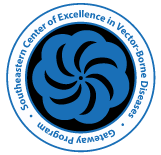In-Person Development and Training
We would like to award a $1,000 fellowship to 10 entry level individuals who are interested in attending FMCA’s DODD Short Courses. Applications are scored based on an applicant’s commitment to public health entomology, attention to detail in completing the application, and their need for the training.
The DODD courses will be January 27th-31st, 2025 in Gainesville, FL.
Fellowship applications open November 21, 2024 and close on December 9th, 2024.
Application can be found here.
Online Professional Development and Training
Course Link: https://learn.invisible.international/courses/one-health-for-human-health-clinicians/#learndash-course-content
This module provides an overview of the One Health framework for human health clinicians and describes how this framework can be applied in clinical practice. One Health is a “concept and an approach that recognizes that the health of people, animals, and the environment are inextricably interconnected.” This course covers the full scope of One Health arenas in need and examples of cross-professional collaborations.
Learning objectives:
• Define what the term ‘One Health’ refers to and why it is important for human health professionals.
• Give at least 3 examples of arenas/issues in need of a One Health approach.
• List 4 actions they might take as human health clinicians to implement One Health thinking in their daily work life.
The AAFP has reviewed “One Health for Human Health Clinicians” and deemed it acceptable for AAFP credit. Term of approval is from 05/07/2022 to 05/06/2023. Physicians should claim only the credit commensurate with the extent of their participation in the activity.
This session is approved for 1.0 online enduring material activity AAFP Prescribed credits.
AAFP Prescribed credit is accepted by the American Medical Association as equivalent to AMA PRA Category 1 credit(s)™ toward the AMA Physician’s Recognition Award. When applying for the AMA PRA, Prescribed credit earned must be reported as Prescribed, not as Category 1.
The PacMOSSI vector surveillance and control course focuses on building capacity for vector surveillance and control of Aedes– and Anopheles-borne diseases in Pacific Island Countries and Territories (PICs). The primary audience for the training course is Ministry of Health (MoH) operational and managerial staff in PICs; however, the training may be adapted by any individual interested in upskilling in vector surveillance and control.
The training comprises fully online, self-paced modules. Each module will take about 3 to 5 hours for students to complete. The course comprises a series of interactive web-based units that present key concepts through audio narration, animations, case studies, readings and quizzes to help students achieve the learning outcomes.
The modules will be published online in Moodle (https://pacmossi.moodlecloud.com/). Once enrolled, students will have ongoing access to the course so they can continue to participate in forums and refer to materials as needed.
Learn more here: https://pacmossi.org/training/
The American Mosquito Control Association (AMCA) published an update to their Best Practices for Integrated Mosquito Management manual that includes new information on managing Culex species and reducing arbovirus transmission.
A free virtual climate change and emerging infectious diseases seminar series hosted by the University at Albany will begin on October 21st, 2021. Please see the seminar schedule for more details and call-in information!
The Students of Acarology Group (SOA), associated with Acarology Society of America, is currently working to expand their student network and get more students involved. The benefits of SOA include student travel and presentation awards, leadership opportunities in a national level society, research highlighted on social media and being part of a group of supportive peers in acarology. Please see the flyer for more information.
The New York State Department of Health and University at Albany are hosting a joint seminar series on Climate Change and Emerging Infectious Diseases. Join this group on the third Thursday of the month (unless otherwise noted) at 4 PM EST for presentations on VBDs and climate change.
The full schedule and meeting information can be found here.
Are you a local public health official interested in learning more about how to perform active tick surveillance in your jurisdiction? The I-TICK program is offering online active tick surveillance training this year due to the COVID-19 pandemic. The focus of this online training is providing you with the knowledge needed to start active tick surveillance programs within your respective jurisdictions.
See full description and access the training here: https://vetmed.illinois.edu/i-tick/2020/06/18/online-tick-surveillance-training-for-local-health-departments/
The Midwest Center of Excellence in Vector-Borne Diseases (MCE-VBD) is offering a certificate in Public Health Entomology to recognize and provide basic skills related to the surveillance and management of mosquito- and tick-borne diseases. The certification process is open to anyone affiliated with MCE-VBD partner organizations with interest in developing skills in vector-borne disease surveillance and control.
The Entomological Society of America Certification Corporation offers two certification programs for professionals who work with insects:
• Board Certified Entomologist – program for professional entomologists with degrees in entomology or a closely-related field
• Associate Certified Entomologist – program for pest management professionals with strong training and experience in insect-related work, but without academic training required of professional entomologists
The e-modules cover basic mosquito biology, surveillance and control with an emphasis on Aedes aegypti and Aedes albopictus
A no-cost 11-course learning series developed by the Centers for Disease Control and Prevention and partners. Program emphasized the use of integrated pest management (IPM) to address public health pests and vectors that spread disease.


